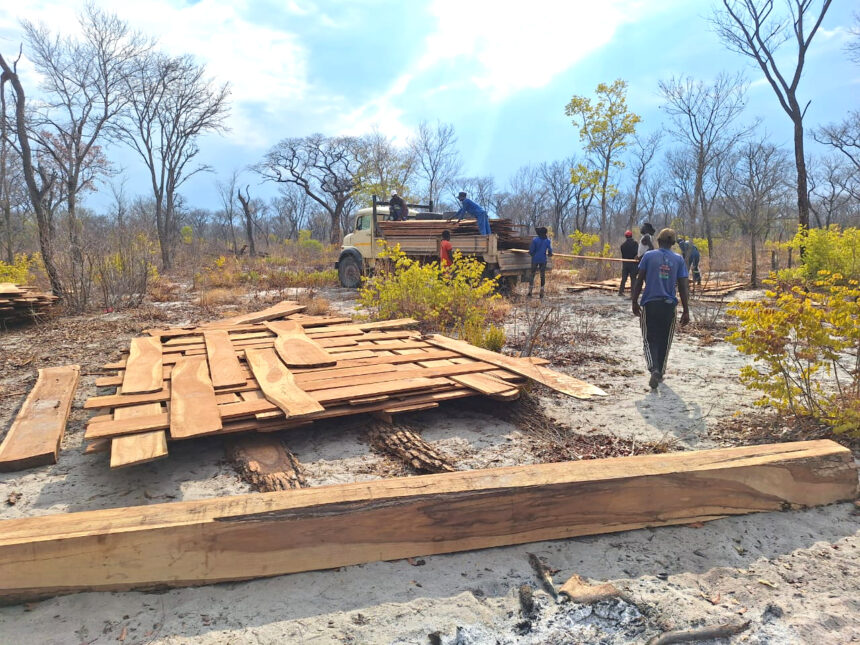Lylie Joel
NKURENKURU – Illegal timber harvesting in the Kavango West region remains an ongoing problem, despite a sharp decline in recent years. While timber harvesting has decreased following the suspension of permits in 2019 due to legal violations, illegal cross-border timber trafficking continues to undermine conservation efforts.
The ban was lifted in 2023, and timber harvesting permits are issued to those that have met the requirements such as timber inventory, proof of land ownership/leasehold, letter from the traditional authority and Environmental Clearance Certificates.
Johnson Ndokosho, Director of Forestry in the Ministry of Environment, Forestry and Tourism (MEFT) said enforcement has been scaled up, with timber products from neighbouring Angola and Zambia to Namibia being confiscated in joint operations with local police and the Namibia Revenue Agency (NamRA). “In 2023 and 2024, over 1 600 pieces of illegal timber, alongside 1 800 planks from Angola and Zambia were seized in a concerted effort to curb the trade,” stated Ndokosho. Although no cases were opened for illegal harvesting of timber, a total value of fines for admission of guilt amounting to over N$32 000 has been issued to 16 alleged culprits since January 2024 to November 2024 in Kavango West. Confiscated products remain stored at forestry offices, highlighting ongoing concerns.
The government has empowered local communities through initiatives like community forests, allowing residents to sustainably harvest timber, generate income, and protect forests from illegal exploitation.
“While awareness campaigns and regular inspections have helped curb the problem, authorities stress that continued collaboration with neighbouring countries and stricter enforcement are key to tackling illegal logging in the region,” said Ndokosho.
-Nampa


